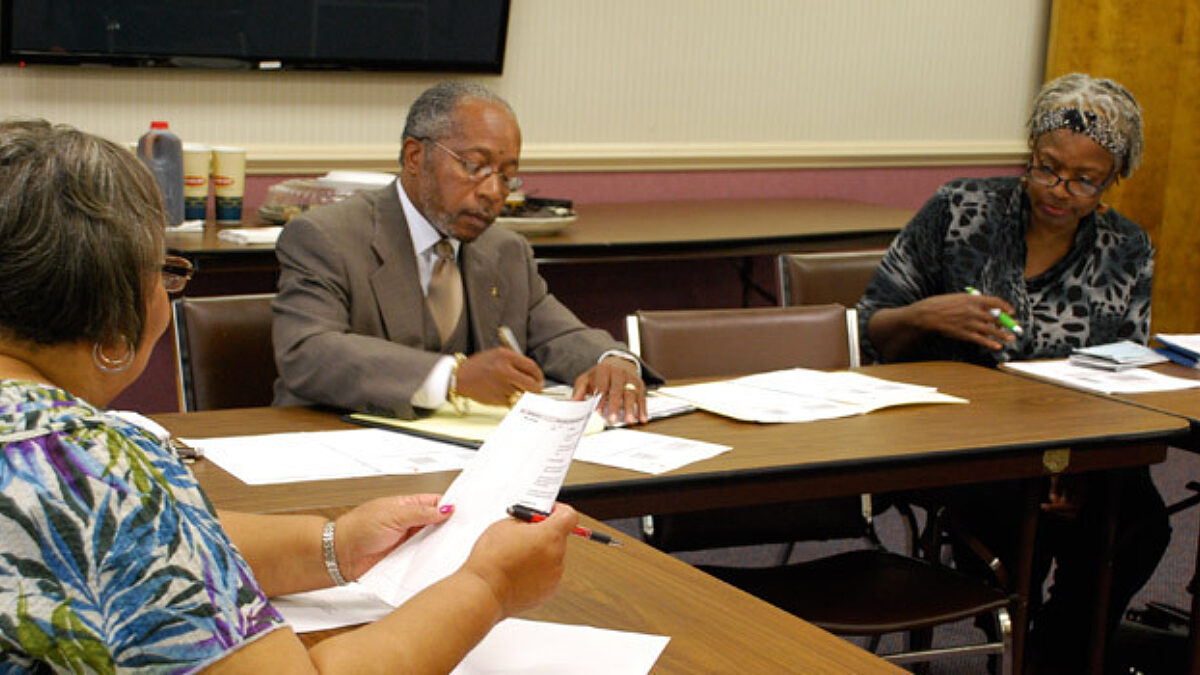
African-American Task Force brings new awareness to UMC's struggles, challenges
By Jessica Connor
When the Rev. James Elbert Williams made a pilgrimage in January on the bishop’s trip to South Africa and Zimbabwe, his eyes were opened in a brand-new way.
He expected to see some poverty. He expected to see some challenges.
But what surprised him was the realization that the challenges he saw there, 8,000 miles away, were the identical challenges facing his African-American brothers and sisters right here in South Carolina.
“I saw the impoverishment of the people there and the need for education and agriculture—and we have almost the same exact struggles here in South Carolina,” Williams said.
The realization prompted him and others from that trip to do something to make a difference, both here and abroad. Soon after their return, they reconstituted the African-American Task Force, a group that had long ago disbanded, to not only share their discoveries about what people endure in Africa, but also to help people be more aware of South Carolina’s similar challenges, and find a way to make a change.
The African-American Task Force comes under the Committee for Ethnic and Local Church Concerns, and both groups have a shared purpose to create vital programs, collaborative initiatives and transparent processes with regard to ethnic ministries. The African-American Task Force is specifically mandated to identify the concerns of the African-American community and then to work to ensure political, educational, social and economic stability in the African-American community both domestically and abroad, Williams said.
“We hope to identify challenges among the black congregations and populations in South Carolina: poverty, education, child abuse, political challenges, economic concerns, health and housing, discrimination, the labor force, the criminal justice problems subjected to so many in the black community,” Williams said.
The group had their first meeting in March, then subsequent phone meetings, and met most recently Sept. 19 at the conference center. Joining Williams on the task force are Maureen Thomas, vice chair; the Rev. Angela Ford Nelson, secretary; and the Rev. Carleathea Benson, ELCC representative.
“It’s important because there has to be a voice within the conference about this,” Benson said, noting the conference is also exploring formation of a comprehensive plan for all racial and ethnic ministries; watch the Advocate for a full story soon.
While the African-American Task Force is still getting started, they hope to make a major impact by actively seeking issues and bringing about needed awareness and solutions. Williams said it is all about “telling our story.” He pastors Marion Parish, a three-point charge in Marion County, what he calls “one of the poorest counties in South Carolina.” There, people who retired 30 years ago exist month-to-month on the same monthly retirement income they received when they stopped working—yet times have changed and the cost of living has increased dramatically. Their children, who left the area to seek higher education, have no desire to return to a depressed economic workforce.
“But it’s not just Marion County—it’s all over the state,” Williams said.
‘Creating grace-filled stories’
Nelson said she joined the African-American Task Force out of gratitude to the ELCC for helping her achieve one of her dreams in the pilgrimage to Africa.
“The African-American Task Force’s goal is to ‘tell our story’—and what a story we have to tell! Our story is one that is shared across our conference and the world; it is one of determination, disappointment and deliverance by the hand of Almighty God,” Nelson said.
She said the task force has been selling copies of a DVD documenting their historic trip to Africa. Produced by the task force in partnership with Matt Brodie, the DVD contains the testimonies of several of those who made the pilgrimage, including herself, Bishop Jonathan Holston, Ronald Friday, Africa University’s Dr. Jim Salley and others. The DVD was sold at Annual Conference and at the Africa University Golf Outing Sept. 22, and has generated more than $500 for ongoing ELCC ministries.
“As we open the door to this new chapter in the African-American Task Force’s history, I am excited by the dedication of our members and the support that we have received thus far from South Carolina with their support of our pilgrimage to Africa DVD and the golf tournament,” Nelson said. “With the proceeds of our ministry efforts, we hope to create grace-filled stories for those in corridors of shame, those behind prison bars and those knocking on class-ceilings.”
Relearning what was forgotten
One of those grace-filled stories might just be food sustainability, which Williams is passionate about. For many years, he said, African Americans owned much land in this state, raising chickens and planting corn, potatoes, beans and more.
“But we sold that land,” Williams said. “And now we have to go to the grocery store.”
He believes one solution to poverty is a return to agriculture, which is being emphasized in Zimbabwe and South Africa.
“Many years ago, we were slaves and then they said ‘You’re free.’ Well, free for what? We had to learn,” Williams said.
In Africa, he said, people were set free from apartheid but didn’t know how to plow, barter or handle themselves in an open-world market, but they’re being retaught the skills they used to know—and that is exactly what should happen here in South Carolina.
“We need to relearn what we’ve forgotten,” Williams said. “The struggle in South African is the same struggle in South Carolina, and we need to bring that to the forefront of the Annual Conference.”
If anyone wishes to help, learn more or possibly serve on the task force, contact Williams at 803-773-6422 or [email protected], or email Benson at [email protected].